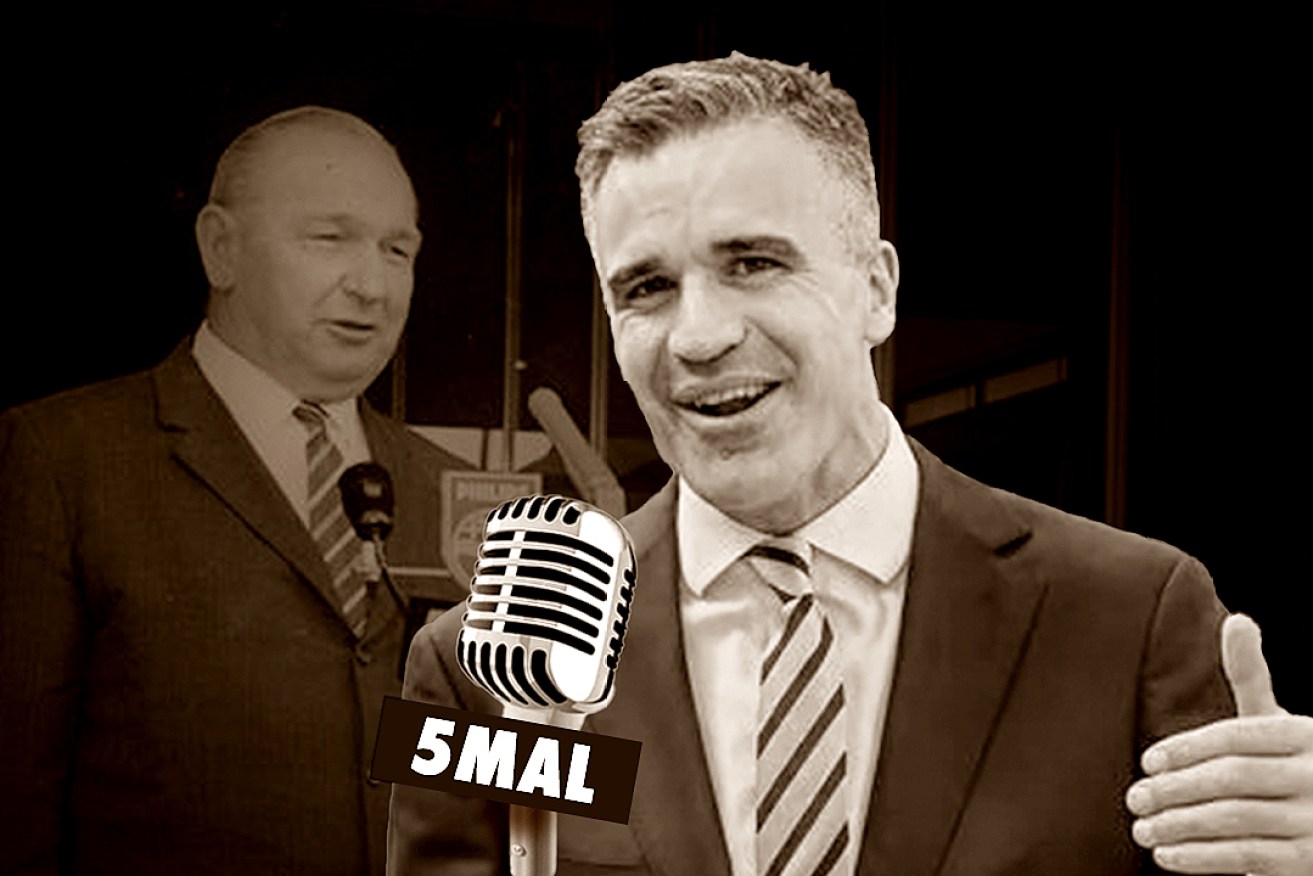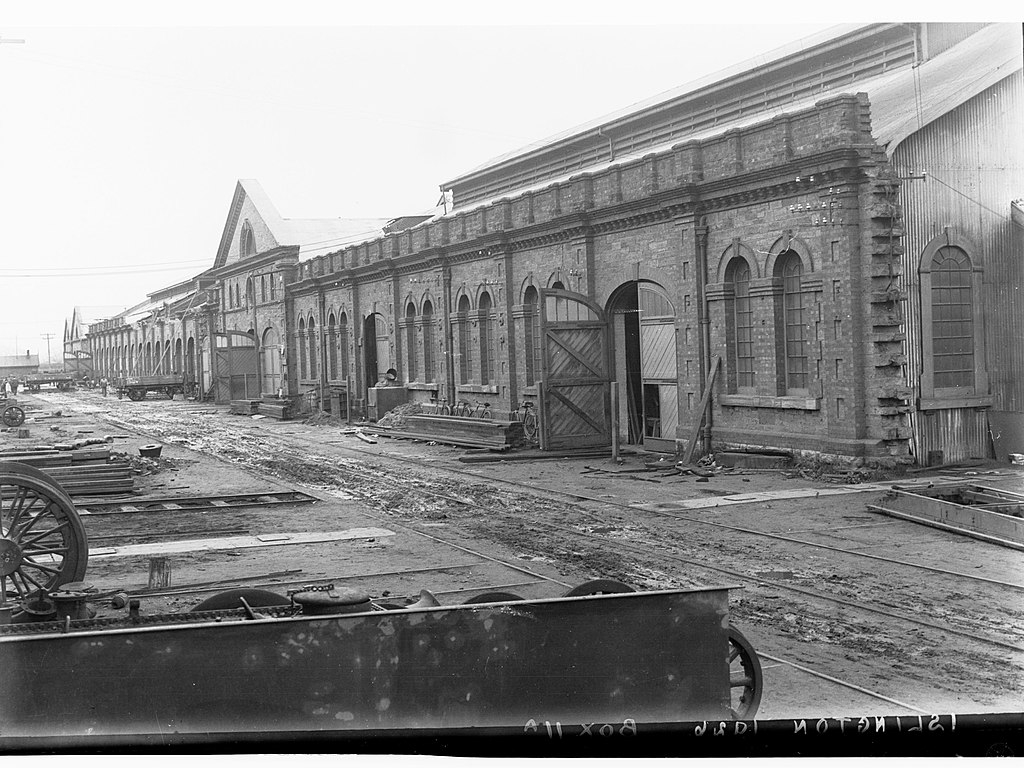Premier, you’re no Tom Playford – at least not yet
Peter Malinauskas has invoked the memory of Sir Thomas Playford, but the legacy of South Australia’s longest-serving Premier contains a sobering warning for the state’s new leader, writes Matthew Abraham.


Maureen and Mary didn’t just assemble munitions, Bren Gun carriers and airframe parts for Beaufort bombers in the Islington Rail Workshops during the Second World War.
They also riveted together what became a lifelong friendship. And helped win a war.
The two unmarried women were among a hastily recruited, mainly female wartime workforce that swelled to around 2500 as the workshops switched from locomotives to a massive wartime production feat.
Then Premier Sir Thomas Playford lobbied the Commonwealth for the lion’s share of the Beaufort contract. Apart from Islington, the work was farmed out to the GMH Woodville plant, that produced a mind-boggling 9,590,000 pressed parts for the aircraft, British Tube Mills at Kilburn, Kelvinator at Keswick, Perry Engineering at Mile End and a myriad of other local blue-collar companies, all now long since departed.
Maureen was my mum. Mary was her great, wonderful friend who, legend has it, met her future husband, Bill Crouch, at a party at mum’s parent’s home.
She was always “Aunty Mary” to us and for holidays the Abraham kids would pile into the back of dad’s big black Wolseley 6/80 for the waterbag trip to the Crouch farm at Moorlands, on the Mallee Highway, out past Tailem Bend. The Mallee farm was like Disneyland to us.
Mum hated the war but loved her time in paid employment at the Islington rail yards. When the war ended, so did most of their jobs.
So, I have always had a soft spot for the hard yards put in by the women at the Islington workshops during the war.
And here’s the thing. The incredible transformation of Adelaide’s heavy manufacturing base during the Second World War was illusory. While friendships endured, the death of South Australia’s traditional blue-collar workforce in the decades since was slow but painfully relentless.
Playford’s vision for his state could never have anticipated the death of the Australian motor car, the widespread removal of tariffs, the floating of the dollar, the $299 ALDI washing machine, the enduring love affair with cheap imports of everything, from cars to socks and jocks, Uber eats and the rise of the digital economy.
Now we have a new Premier who, less than a year into the job, paints himself as the new Tom Playford.

The Islington Railway Workshops in 1928. Image: State Government Photographer, CC0, via Wikimedia Commons
Last week, at a state dinner to celebrate the return of the Adelaide 500 Supercar race, Premier Peter Malinauskas gave a speech drawing parallels between the challenges faced by Playford after WWII and the challenges he faces after COVID.
Let’s put aside the very real fact COVID isn’t going anywhere. And let’s also try to put aside the fact it’s ludicrous to compare it with the traumatic economic and social impact of a world war.
The Premer said that Playford “understood that business as usual wasn’t going to be enough in that new post-WWII global economy”, according to The Advertiser’s report.
“It struck Playford at the time that he was essentially a leader of a small, still largely agricultural jurisdiction that did have a substantial question that demanded an answer: ‘What was the state’s identity? What is its purpose? And how does it contemplate itself in that new post-WWII global economy,” he said.
Malinauskas obviously has a gun speech writer and knows how to deliver his lines.
I listened to his speech to the Australian Hotels Association traditional President’s lunch last week – admittedly to a business audience besotted with him – and he was impressive.
Rarely looking at his notes, stretching his arms out in Messiah mode for emphasis, he’s the best performing Premier behind a microphone since Don Dunstan. Maybe even better. Or maybe I need to get out more.
One of his luncheon high notes was the claim that people in the eastern states are suddenly captivated by what’s happening in Adelaide. Are they?
It’s one thing to whip up enthusiasm, it’s another to over-egg the pudding.
Maybe it was the lingering fumes of the supercars, but he really pressed the hyperbole pedal to the metal a couple of days later, as part of a forum on the state’s defence industry.
He described our state as the “epicentre” of the nation’s defence industry and said young South Australians should seek defence jobs to “change the course of history”.
“Working for Google is fun and useful and commercially enticing, no doubt, but changing history is something money cannot buy,” he told The Advertiser’s “Defending Australia” shindig.
It’s hard to nut out quite what this means, but it got a huge splash in Saturday’s Tiser.
Not in the paper, but tweeted by it, was this extraordinary quote from the Premier: “The nuclear submarine program is going to be about 9000 direct jobs. If you choose this industry, you can dispense with any anxiety about the future prosperity of your children and their children.”
Wow. Jobs for life, not just for you and your kids but for the grandies. This sits somewhere between former Prime Minister Bob Hawke’s 1987 election promise that by 1990 “no child will live in poverty” and former PM Paul Keating’s use of the dreadful term “dead-end jobs” to describe jobs that needed no tertiary training.
While well-intentioned, it is cruel to promise children things you can’t deliver.
The Premier might not like it, but our state remains a ‘small, still largely agricultural jurisdiction’ as he says it was for Playford.
The AUKUS deal to build an Australian fleet of eight nuclear-powered submarines still has more questions hovering over it than answers. The Australian Strategic Policy Institute last year estimated the likely cost at between $70 billion at an “absolute minimum” for a smaller submarine design, not factoring inflation, to an eye-watering $171 billion with inflation and design changes.
The $55 billion “contract of the century” for the French Naval Group to build 12 conventional diesel-electric Barracuda-class subs over 25 years, allegedly in Adelaide, was scrapped by the former Morrison Coalition Government faster than you can say “down periscope”.
Easy come, easy go. Ask the hundreds of workers hired by the Naval Group how their jobs for life are looking.
Labor’s new federal Defence Minister Richard Marles says he’ll unveil the full AUKUS submarine plan next year and thinks the first boat will be in the water sometime in the 2030s.
“The optimal pathway is taking shape. We can now begin to see it,” he says, with a straight face.
The Guardian reports that he is expected to answer five critical questions on the nuke submarines in 2023: the final design; when it can be acquired; what capability gap that timeline will create and solutions to plug it; the cost; and how Australia’s plans comply with nuclear non-proliferation obligations.
We do not know when work will start on building the first AUKUS submarine at Osborne, or even if we are guaranteed to secure the full project, or whether the nation will borrow a British or US submarine to fill the “capability gap”. I’d put money on the borrow-maybe-build shandy option as the best bet.
The Premier might not like it, but our state remains a “small, still largely agricultural jurisdiction” as he says it was for Playford. The big money is in bumper wheat and barley crops, wine and digging up copper and uranium. The safest jobs in Adelaide are for baristas, bartenders and shoppies.
Malinauskas was a union boss, Playford a cherry farmer.
Malinauskas gave free parking to shoppies. Playford gave us ETSA.
Malinauskas fights backroom factional ALP battles. Playford fought with the 27th Battalion in WWI on Europe’s blood-soaked battleground like Messines, The Somme, The Ancre, the Ypres Salient, Passchendaele and Pozìeres Ridge.
Malinauskas hasn’t suffered a scratch in his career to date. Playford was “terribly wounded at Flers near the end of the last battles of the long campaign on The Somme”, as his biographer the late, great Stewart Cockburn recounts.
Our state does face substantial questions that demand answers. But so does this government. We should demand answers of it, not be blinded by the light.
In Cockburn’s outstanding biography, Playford. Benevolent Despot, he says prominent accountant and company director, the late Sir Norman Young, believed “it might have been better if the community and the Press had been readier to submit the Government’s policies to more critical judgement”.
In the chapter titled “A Balanced Economy”, Young questioned the wisdom in hindsight of handcuffing the state to so much heavy industry as “the long-term disadvantages have tended to outweigh the short-term advantages”.
“Of course Playford was such a difficult man to oppose,” Young said. “If his charm didn’t work on you he would resort to bullying. Eventually he had almost the entire business community under his thumb. Ordinary people were mesmerised by him.”
Playford and Malinauskas have those latter two points in common, then.
Perhaps, after a mere nine months in the job, Premier Malinauskas is the new Tom Playford. In my book, it’s a bit early to make that call.
Matthew Abraham’s weekly analysis of local politics is published on Fridays.
Matthew can be found on Twitter as @kevcorduroy. It’s a long story.




